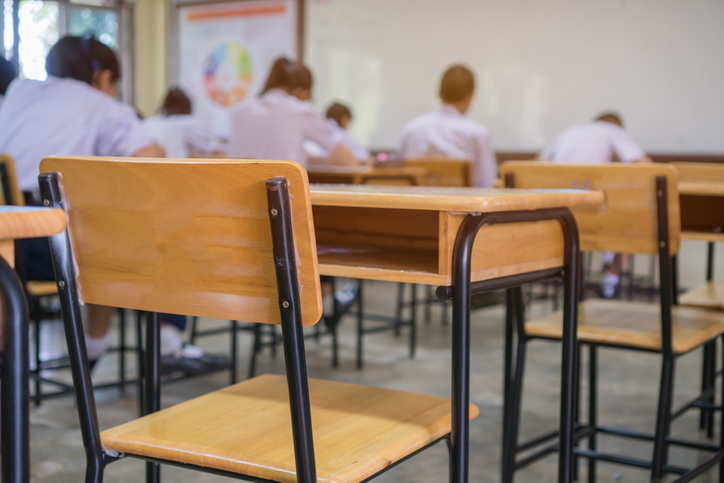The school closures have also left thousands without a secure learning environment as well as access to their only cooked meal of the day.

iStock
The coronavirus pandemic has exposed the fault lines in the South African education system, particularly relating to inclusivity, participation, equality and transformation.
This is according to education changemaker and Thuma Foundation ambassador Kabelo Mahlobogwane, who is part of a working group exploring the challenges facing pupils.
He was speaking at a virtual roundtable discussion on social justice and mental health in the face of the coronavirus pandemic, hosted by Professor Thuli Madonsela, the Law Trust chair in Social Justice in the Faculty of Law at Stellenbosch University.
Following the closure of schools and tertiary institutions, most have turned to alternatives to continue with learning, said Mahlobogwane, who is also the Gauteng secretary of the Educators’ Union Of South Africa.
“But this brings up the obvious issue of lack of access to technology, data or, in the most extreme cases, even electricity.
No services
“There is a two-tier system… those with the digital capital and those without any services, which reinforces the different ways in which both public and private education in SA produces privilege and thereby a particular form of domination.”
The school closures have also left thousands without a secure learning environment as well as access to their only cooked meal of the day, he pointed out.
This has resulted in increased stress and anxiety in the face of great uncertainty as pupils are focused on survival instead of self-actualisation.
“A further issue is that it is now left to parents at home to aid their children in continuing with learning. However, many are illiterate and unable to do so,” Mahlobogwane said.
Essential worker
Others are single-parent households where the caregiver is also an essential worker, while many are unable to assist their child as they go to work as they aren’t able to do so from home.
The education system was not designed to be run from home, and the challenges involved in doing this made it a breeding ground for dropping out, Mahlobogwane said.
Government policy has in parts failed to address the different challenges facing those in rural and urban areas, he said, especially in terms of access to technology.
Young people’s mental health was also taking strain, he argued, because they face much uncertainty, stress and anxiety.
He urged the government to use all available digital platforms as well as websites from which content can be downloaded for those without reliable internet access.
Practical, easily accessible and simple content was also needed for pupils across all grades which should ideally be disseminated across as many platforms as possible, including TV, he said. Teachers should make use of widely-used platforms, such as WhatsApp, to provide pupils with basic education material so that they can keep on learning.
Madonsela’s digital think tank roundtable is aimed at considering the social justice implications and constitutional compliance of policy responses to the coronavirus.
She suggested policy formulations and other action for inclusion to be proposed to, among others, government, business and civil society.
For more news your way, download The Citizen’s app for iOS and Android.
Download our app